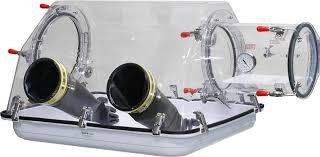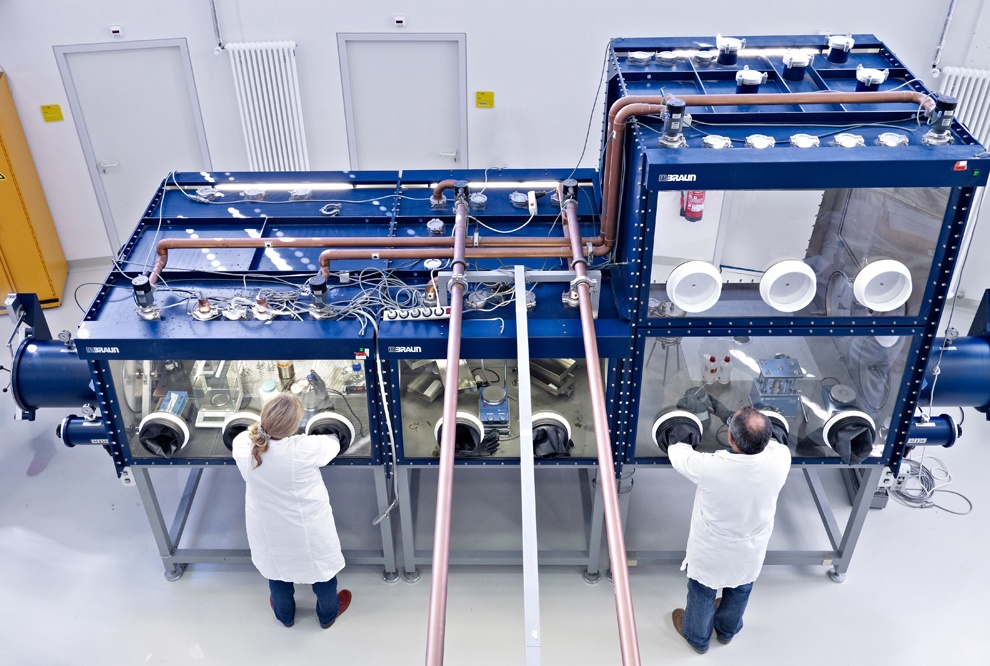Evaluating Major Players in Glassware Washer Industry

The Vital Role of Glassware Washers in Modern Laboratories

In the intricate world of scientific research, laboratories stand as the epicenter of discovery, where meticulous experimentation and precise analysis pave the way for groundbreaking advancements. At the heart of this scientific endeavor lies a seemingly unassuming yet indispensable tool: the glassware washer. While often overlooked in the grand scheme of laboratory equipment, the glassware washer plays a pivotal role in ensuring the accuracy, reliability, and ultimately, the success of countless scientific experiments.
The importance of glassware washers in the laboratory setting cannot be overstated. These specialized machines are designed to meticulously clean and sterilize laboratory glassware, ensuring that each piece is free from contaminants that could compromise the integrity of experiments. From delicate pipettes to robust beakers, glassware washers are tasked with removing traces of chemicals, biological residues, and other impurities that could skew results and undermine the validity of scientific findings.
The demand for glassware washers has surged in recent years, driven by a confluence of factors. The burgeoning scientific research landscape, fueled by advancements in technology and the pursuit of new discoveries, has led to an increased reliance on laboratory equipment. Moreover, the growing emphasis on quality control and regulatory compliance in scientific research has further underscored the importance of maintaining pristine laboratory glassware.
The market for glassware washers is characterized by a diverse range of manufacturers, each offering a unique array of features and capabilities. This competitive landscape presents both opportunities and challenges for laboratories seeking to acquire the most suitable glassware washer for their specific needs. The decision-making process can be complex, requiring a thorough evaluation of factors such as cleaning capacity, sterilization methods, automation capabilities, and cost-effectiveness.
This comprehensive analysis delves into the intricacies of the glassware washer industry, providing a detailed examination of the major players and their respective offerings. By dissecting the features, functionalities, and performance characteristics of leading glassware washer manufacturers, this analysis aims to equip laboratory professionals with the knowledge and insights necessary to make informed decisions regarding the selection and procurement of these essential laboratory tools.
The analysis will explore the key considerations that influence the choice of a glassware washer, including:
1. Cleaning Capacity
The cleaning capacity of a glassware washer is determined by the volume of glassware that needs to be cleaned and sterilized regularly. It is essential to choose a washer that can handle the laboratory's workload efficiently. Key aspects to consider include:
- Volume of Glassware: Assess the typical daily or weekly volume of glassware that requires cleaning. This includes beakers, flasks, pipettes, and other items.
- Size and Types of Glassware: Consider the dimensions and types of glassware to ensure the washer can accommodate various shapes and sizes without compromising cleaning effectiveness.
- Batch vs. Continuous Cleaning: Determine whether batch processing or continuous cleaning better suits the laboratory’s workflow.
2. Sterilization Methods
Glassware washers employ various sterilization methods, and the choice of method depends on the specific requirements of the laboratory and the types of glassware being cleaned. Common sterilization methods include:
- High-Temperature Washing: Effective for removing stubborn residues and ensuring thorough sterilization. Ideal for glassware used in microbiological and pharmaceutical labs.
- Steam Sterilization: Utilizes steam to achieve high levels of sterilization, suitable for glassware that must be free of microbial contamination.
- UV Irradiation: Employs ultraviolet light to sterilize glassware, useful for sensitive items that cannot withstand high temperatures or moisture.
3. Automation Capabilities
Automated glassware washers offer significant advantages in terms of efficiency, consistency, and ease of use. Important automation features include:
- Automatic Loading and Unloading: Reduces manual labor and minimizes the risk of breakage or contamination during handling.
- Cycle Programming: Allows users to set specific cleaning and sterilization cycles tailored to different types of glassware, ensuring optimal results.
- Data Logging: Tracks cleaning cycles and parameters, providing valuable documentation for quality control and regulatory compliance.
- Remote Monitoring and Control: Some advanced models offer remote access, allowing users to monitor and control the washer from a distance, enhancing convenience and oversight.
4. Cost-Effectiveness
The cost of a glassware washer encompasses more than just the initial purchase price. Laboratories must also consider operating costs and maintenance requirements to evaluate the overall return on investment. Factors to assess include:
- Initial Purchase Price: Compare the upfront costs of different models, considering the features and capacities offered.
- Operating Costs: Account for the costs of water, detergents, energy consumption, and any consumables required for operation.
- Maintenance and Repairs: Evaluate the ease of maintenance, availability of spare parts, and the reliability of the washer to minimize downtime and repair expenses.
- Longevity and Durability: Invest in a robust, high-quality washer that will provide long-term service, reducing the need for frequent replacements.
By examining these key considerations and analyzing the offerings of leading glassware washer manufacturers, this analysis will provide a comprehensive overview of the current landscape of the glassware washer industry. This information will empower laboratory professionals to make informed decisions that align with their specific needs and budget constraints, ultimately contributing to the advancement of scientific research and the pursuit of knowledge.
Products You may Like
Check out other IT- Tech product that suit your taste
Subscribe to our newsletter
Stay updated with IT-Tech Insights
Related posts
Check out other IT- Tech Scientific Resources

Captains of the Glove Box Universe: Movers and Shakers in the Industry
The Glove Box industry is a dynamic landscape driven by innovation and a commitment to laboratory safety. This article delves into the world of Glove Box manufacturers, examining their unique offerings, technological advancements, and impact on research and development. From established leaders to emerging players, we explore the companies driving the evolution of Glove Box technology, ensuring a secure and controlled environment for critical scientific work. Join us as we uncover the movers and shakers who are shaping the future of Glove Box technology.

Superhero Sidekicks: The Many Marvels of Glove Boxes
Glove Boxes are enclosed workstations designed to create a controlled environment for handling sensitive materials. They are widely used in laboratories for applications such as handling hazardous substances, conducting sterile procedures, and working with materials that require protection from atmospheric contaminants. Glove Boxes provide a barrier between the user and the work area, ensuring the safety of both the operator and the experiment. They are equipped with gloves that allow manipulation of materials within the box while maintaining a controlled atmosphere. Glove Boxes are essential for a wide range of scientific disciplines, including chemistry, biology, pharmaceuticals, and materials science. They play a crucial role in research, development, and quality control, enabling scientists to conduct experiments with precision and accuracy.

Who's Who in the World of Lab Furniture: Industry Giants and Their Premier Products
Navigating the world of laboratory furniture can be overwhelming. This article provides a comprehensive overview of industry leaders and their standout products. We explore key features, benefits, and considerations to help you make informed decisions. From ergonomic workstations to specialized storage solutions, we cover the essential aspects of lab furniture, empowering you to create a functional and efficient workspace.










































































